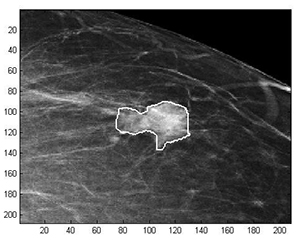Latest News Archive
Please select Category, Year, and then Month to display items
12 June 2024
|
Story Lunga Luthuli
|
Photo supplied
![]()
Richard Molefe, a final-year BCom Investment Management and Banking
student at the University of the Free State (UFS), was recently elected uncontested as the National Chairperson of the Black Management Forum (BMF) National Student Chapter. The BMF aims to empower managerial leadership among black individuals in South Africa. Molefe's election signifies a step towards inclusive leadership structures that reflect wider societal values.
In an exclusive interview, Molefe shares his vision for youth empowerment and his plans for the Student Chapter's endeavours.
“The Black Management Forum’s programmes of development and advancement of managerial leadership and socio-economic transformation have exposed me to leadership opportunities that enhance my potential and aspirations. The opportunity is an indication that I have done something right, but I must constantly remind myself that I have not arrived,” said Molefe.
In his one-year term of office, Molefe wants to ensure that national structures of the Student Chapter exist and are functional, key pillars – promoting leadership, managerial leadership development skills, and entrepreneurial skills development in higher education institutions.
Mathematical methods used to detect and classify breast cancer masses
2016-08-10
 Examples of Acho’s breast mass
Examples of Acho’s breast mass
segmentation identification
Breast cancer is the leading cause of female mortality in developing countries. According to the World Health Organization (WHO), the low survival rates in developing countries are mainly due to the lack of early detection and adequate diagnosis programs.
Seeing the picture more clearly
Susan Acho from the University of the Free State’s Department of Medical Physics, breast cancer research focuses on using mathematical methods to delineate and classify breast masses. Advancements in medical research have led to remarkable progress in breast cancer detection, however, according to Acho, the methods of diagnosis currently available commercially, lack a detailed finesse in accurately identifying the boundaries of breast mass lesions.
Inspiration drawn from pioneer
Drawing inspiration from the Mammography Computer Aided Diagnosis Development and Implementation (CAADI) project, which was the brainchild Prof William Rae, Head of the department of Medical Physics, Acho’s MMedSc thesis titled ‘Segmentation and Quantitative Characterisation of Breast Masses Imaged using Digital Mammography’ investigates classical segmentation algorithms, texture features and classification of breast masses in mammography. It is a rare research topic in South Africa.
Characterisation of breast masses, involves delineating and analysing the breast mass region on a mammogram in order to determine its shape, margin and texture composition. Computer-aided diagnosis (CAD) program detects the outline of the mass lesion, and uses this information together with its texture features to determine the clinical traits of the mass. CAD programs mark suspicious areas for second look or areas on a mammogram that the radiologist might have overlooked. It can act as an independent double reader of a mammogram in institutions where there is a shortage of trained mammogram readers.
Light at the end of the tunnel
Breast cancer is one of the most common malignancies among females in South Africa. “The challenge is being able to apply these mathematical methods in the medical field to help find solutions to specific medical problems, and that’s what I hope my research will do,” she says.
By using mathematics, physics and digital imaging to understand breast masses on mammograms, her research bridges the gap between these fields to provide algorithms which are applicable in medical image interpretation.